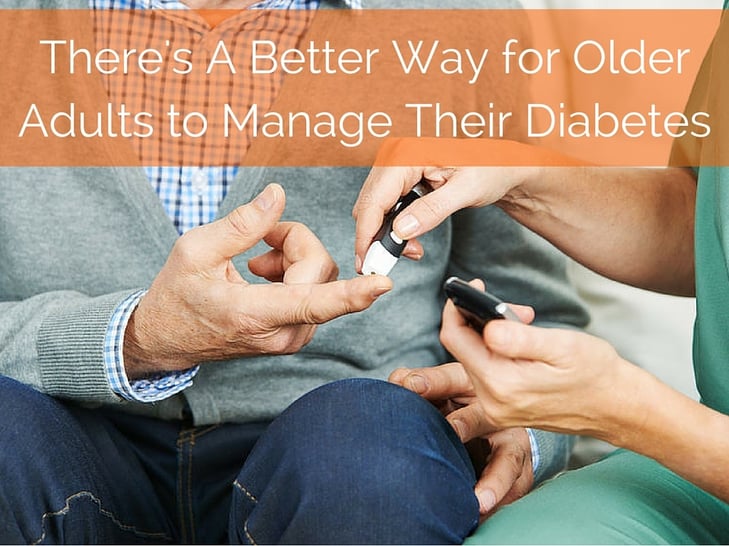
As the population ages, the number of older adults living with Type 2 Diabetes also increases. Recent estimates point to the disturbing fact that approximately one in four Americans over the age of 60 will be diagnosed with the disease. That is an alarming statistic that will require health care professionals and caregivers to take new approaches to treatment and ongoing management of the disease.
There is some good news, however. Advances in diagnosis, monitoring and treatment mean that better control is possible, and older adults can continue to enjoy all of the good things in life longer. Patient education has increased awareness, and ongoing advances in monitoring equipment make living with diabetes much easier.
Know the Signs, Take Action
Diabetes is difficult because it can affect people in a variety of different ways. Typical first signs of the disease are:
- Excessive thirst
- Increased hunger, sometimes accompanied by weight loss
- Frequent urination
- Extreme fatigue, or listlessness
- Blurred vision
- Slow healing of cuts and bruises
- Numbness or tingling in hands or feet
The course of the disease can be unexpected and unpredictable. Blood sugar levels can spike dramatically or plummet just as quickly. And either is dangerous. Constant monitoring is necessary, and frequent professional checkups are advisable. Though oral medication can be beneficial early on, the need for insulin often becomes necessary. For older adults who may also have other health problems, diabetes can be a huge burden.
The Good News
An aging population is at greater risk for the disease. But increased awareness of contributing factors and a new emphasis on proper diet, healthy habits, regular exercise and necessary health screenings tend to counteract dire predictions. Dr. Dennis Villareal, a medical researcher in Houston, notes that it is "never too late" to adopt new habits, and his studies suggests that those beneficial habits can make a big difference in preventing or delaying the onset of diabetes—and in dealing with its progression.
Those good habits include:
- Eating and exercising to maintain a healthy weight
- Participating in supervised exercise programs
- Consulting with dieticians and clinicians to keep glucose levels in check
- Maintaining an upbeat attitude
- Committing to prescribed lifestyle changes
Treatment Advances
When detected in early stages, the progression of the disease can be slowed. Treatment with oral medication can be continued for longer periods of time, and dietary changes in combination with lifestyle adjustments have a greater rate of success.
Newer oral medications work differently to control blood sugar level. Rather than attempting to stimulate production of insulin, they are designed to help rid the body of excess glucose through urination. These medications have promise, but they do have some additional risks for senior health, so be sure to discuss options with your health care professional.
Because diabetes is, essentially, a progressive disease, complications can be unexpected and unpredictable, involving the kidneys, nerves, heart and eyes. And, over time, side effects do become more difficult to control.
Digital technology and electronic devices show huge promise for the future of diabetic monitoring. With non-invasive testing devices that automatically detect blood glucose levels, it is no longer necessary to endure multiple finger pricks each day or to manually interpret the results. Newer on the scene is continuous monitoring technology, allowing automatic glucose level checking as often as every five minutes. Automated insulin pumps deliver insulin doses as needed; but they are not deemed advisable or suitable for use by all individuals as they require a type of catheter to be permanently attached to the body, and they are expensive.
Senior health management options are improving, though, and educational materials are widely available, as are support resources—just check out the wealth of information available from the American Diabetes Association.












